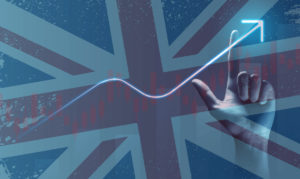
Close

Introduction
With the Pound, we have seen a significant drop in value in recent years. This has many implications for British consumers and U.K. companies and vendors. Here are some highlights of what the weak Pound means for you, as well as tips on how to make the most of this situation:
Why is the Pound weak?
Uncertainty! The Pound has been steadily weakening against other currencies since the Brexit referendum in 2016 and continues to do so drastically today. Initially, the Pound was weak because of the uncertainty surrounding Brexit. But now, the Pound is ailing because of the uncertainty surrounding interest rates, inflation levels, and their impact on consumer behaviour and investment decisions. And the present situation with the government has done very little to reduce the tension and stabilise the Pound.
The current hot topic resulting in ambiguity and significant concerns in the markets has been the tax cuts and increases to public spending announced by the previously formed Conservative government under Liz Truss. It has intensified price pressures and further made markets very jittery. The U.K. Government has yet to produce clear policy statements and provide assurance – that might help mitigate these effects.
Some good news is that the Pound has had an apparent rebound with former Chancellor Rishi Sunak stepping in as the new Prime Minister. Mr. Rishi Sunak’s appointment seems to have reversed all of its post-budget losses early this week. The first few weeks of P.M. Sunak’s term will be critical in stabilising the pound and potentially his financial background could be the boost the GBP needs.
Many economic decisions are made based on expected outcomes, and the effects cannot be predicted where there is uncertainty. Higher inflation, higher interest rates, lower savings rates, lower returns on investments, and more expensive imports loom over the U.K. in a service-based economy.

What does a weak Pound mean for travellers?
• If you’re planning on heading abroad, it might be well worth reconsidering or reassessing plans. The cost of your holiday will go up because of the weak Pound as everything will be more expensive for Britons travelling overseas.
• Budget carefully if you decide to travel as cheaper alternatives exist – such as renting accommodation rather than staying in hotels.
• If you can avoid travelling during peak periods and find alternative ways of getting around, this could save you money too!
• Make sure you get the best exchange rates when dealing with currencies. Shop around, and don’t be afraid to ask.
When British travellers use cash machines or check out at restaurants or hotels abroad, a weaker Pound means they are likely to spend more on foreign currencies. In short, a weaker currency makes everything more expensive. The only silver lining is that, hopefully, many countries may offer better deals because their tourism industry has always benefitted from overseas visitors such as yourself!
What does this mean for migrants sending money home to their families?
A weak pound means that U.K. migrants who send money must send more to meet needs back home. This can be particularly problematic for U.K. migrants sending large amounts of money abroad.
For example, suppose an exchange rate drops from 1 pound = 2 dollars to 1 pound = 1.5 dollars. In that case, you won’t be able to buy as much with £1000 as you could before — which means that your family won’t get as much as they used to with £1000. This will have a roll-on effect if they primarily depend on your income.
In short, the fallen Pound means that U.K. migrants who send money home have less power to influence currency values and less purchasing power abroad when they travel home.
On the brighter side
A low exchange rate will encourage business investment in the U.K. as the costs are much lower than other major currency equivalents. The investment will hopefully give a boost to the U.K. economy. And industries like U.K. tourism are bound to thrive as the weakened Pound will make the U.K. a more alluring destination. And, of course, those looking to save might finally have something to smile about (not yet cheer as it’s still below inflation) as cash deposits will eventually pick up.
One thing is for sure the U.K. will gradually steady itself and carry on. We always do.
At Crosspay, we always try to give the best exchange rates in the market and the best value for your transfers, with even zero fee transfers to some countries. Feel free to contact us.